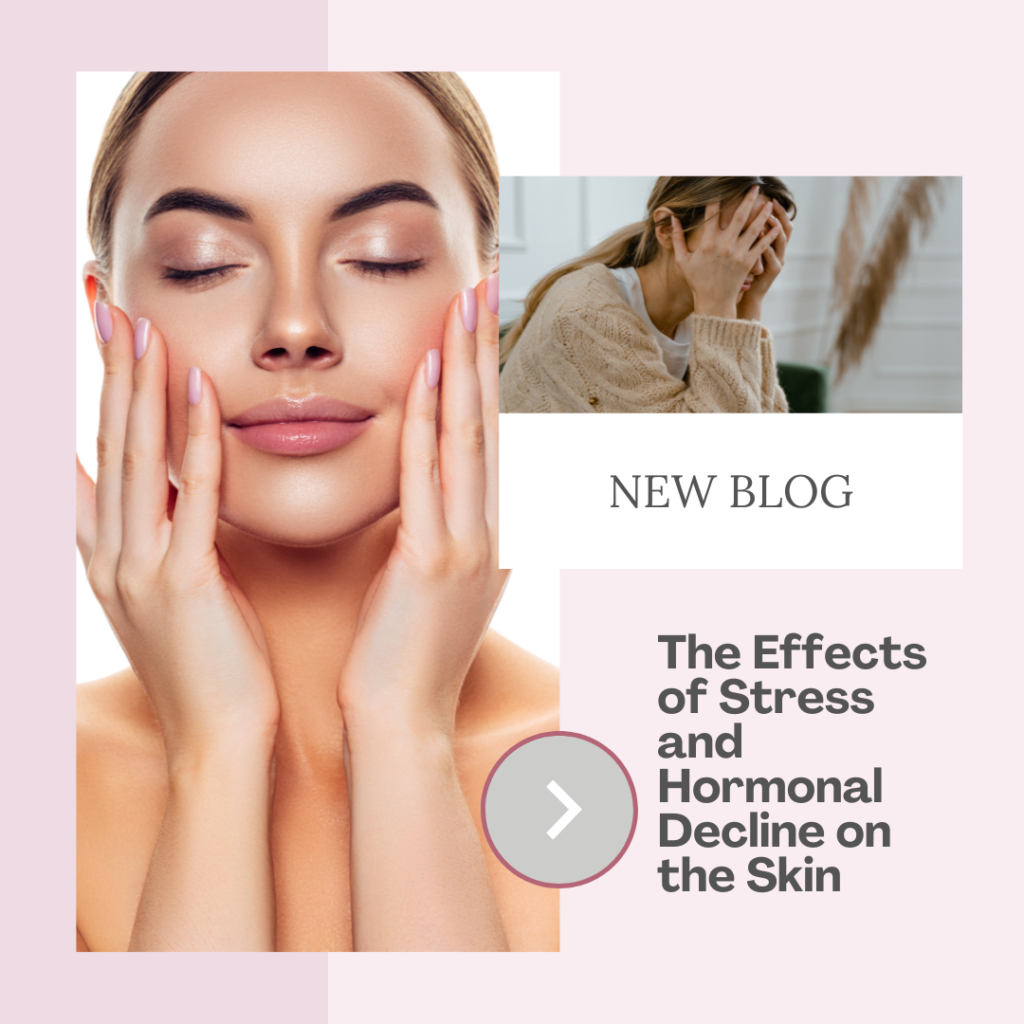
At our clinics, we are seeing an increasing number of patients experiencing stress and anxiety. Whether stress is work-related, financial, or personal, it significantly impacts our overall health. A study by the Mental Health Foundation revealed that 74% of people felt so stressed they were overwhelmed or unable to cope, with women being more susceptible (81% compared to 67% of men).
Stress adversely affects our health, contributing to issues like a weakened immune system, heart disease, insomnia, and poor gut health. But there’s another crucial aspect that often goes unnoticed: stress also accelerates skin aging, affecting its health and appearance.
How Stress Affects the Skin
When we are stressed, our adrenal glands produce excessive amounts of the stress hormone cortisol. This hormone can lead to weight gain and sleep disturbances. Chronic, low-grade stress can build up in our bodies over time, leading to adrenal fatigue. This can result in symptoms like exhaustion, brain fog, low mood, and an inability to cope with daily activities.
The Impact on Skin
Keratinocytes in the epidermis (the outer cell layers of the skin) produce cortisol when we feel stressed. Cortisol is an inflammatory hormone, and depending on your skin type, it can make your skin red, dry, wrinkled, tired-looking, reactive, sensitive, oily, or acne-prone. It can also cause dark under-eye circles.
High levels of cortisol elevate blood sugar, resulting in advanced glycation end products (AGEs), which destroy collagen and elastin. This leads to a loss of skin elasticity and increased inflammation, causing fine lines and wrinkles. Additionally, cortisol breaks down the thin tissues around the eyes, making blood vessels more visible and leading to dark circles.
Stressed skin is more prone to blemishes because extra cortisol increases oil production, making oily skin more susceptible to acne. Stress also slows down the healing process, causing breakouts and spots to take longer to clear. Moreover, anxiety can exacerbate serious skin conditions like eczema and psoriasis.
Hormonal Decline and Skin Aging
Unfortunately, stress isn’t the only factor contributing to skin aging. Hormonal decline, especially around menopause, significantly impacts skin health. The decline in hormones such as oestrogen and progesterone in women, and testosterone in men, parallels the decline in skin quality associated with aging.
Oestrogen
The skin is a primary target for oestrogen action, with facial skin expressing higher concentrations of oestrogen receptors than other areas. Reduced oestrogen levels lead to several skin issues, including wrinkling, dryness, thinning, reduced collagen, slower wound healing, and loss of elasticity.
Interestingly, overweight individuals often maintain higher oestrogen levels due to increased aromatase activity in fat and skin tissue. This enzyme converts testosterone into oestradiol and androstenedione into estrone, which helps maintain skin health.
Oestrogen replacement therapy has shown improvements in skin properties affected by low oestrogen levels, such as increased collagen content, skin thickness, and elasticity. It also enhances the barrier function, preventing dryness and maintaining skin glycosaminoglycan content, which retains moisture.
Hormonal Changes in Men
Low testosterone in men is associated with thinning skin due to reduced availability of testosterone for local conversion into oestrogen. Testosterone replacement has been found to increase skin thickness, improving overall skin health.
Progesterone
Progesterone enhances skin thickness and elasticity. Low levels of progesterone increase the impact of androgens on sebaceous glands and hair, leading to issues like unwanted facial hair growth and androgenic side effects. Excess DHT (dihydrotestosterone) in the skin contributes to acne and male pattern baldness, while high hormone levels can cause skin discoloration.
Seeking Professional Help
Dr. Manning and Dr. Woodward at River Aesthetics offer comprehensive medical consultations to address your needs. Through a combination of pertinent blood or saliva tests, they can identify hormonal deficiencies and create a personalized treatment plan.
Bioidentical Hormone Replacement Therapy (BHRT)
BHRT aims to replenish diminished hormones with plant-derived counterparts. River Aesthetics offers various options, including gels, capsules, or lozenges, to restore testosterone, oestrogen, progesterone, DHEA, and thyroid hormones.
Conclusion
Stress and hormonal decline significantly impact skin health, accelerating the aging process and contributing to various skin issues. Understanding these effects and seeking professional help can help manage and mitigate the impact on your skin. By addressing these factors, you can achieve healthier, more youthful-looking skin.


